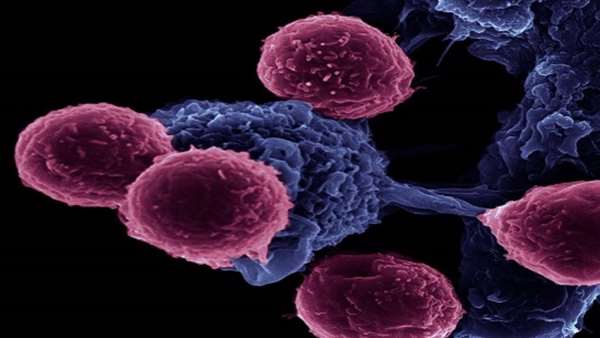Phase 1 clinical trial using mbIL21 ex-vivo expanded donor-derived NK cells after haploidentical transplantation
Relapse has emerged as the most important cause of treatment failure after allogeneic hematopoietic stem cell transplantation (HSCT). To test the hypothesis that NK cells can decrease the risk of leukemia relapse we initiated a phase-1 dose-escalation study of expanded donor NK cells infused before and after haploidentical HSCT for high-risk myeloid malignancies
Relapse has emerged as the most important cause of treatment failure after allogeneic hematopoietic stem cell transplantation (HSCT). To test the hypothesis that NK cells can decrease the risk of leukemia relapse we initiated a phase-1 dose-escalation study of expanded donor NK cells infused before and after haploidentical HSCT for high-risk myeloid malignancies. The goals were to determine the safety, feasibility and maximum tolerated dose (MTD). Patients received a melphalan-based reduced-intensity conditioning regimen and post-transplant cyclophosphamide-based GVHD prophylaxis. NK cells were infused on Days -2, +7 and +28 post-transplant. All NK expansions achieved the required cell number, and eleven of thirteen patients enrolled received all three planned NK cell doses (1x105 to 1x108/kg/dose). No infusional reactions or dose-limiting toxicities occurred. All patients engrafted with donor cells. Seven patients (54%) developed grade 1-2 aGVHD, none developed grade 3-4 aGVHD or cGVHD, and a low incidence of viral complications was observed. One patient died of non-relapse mortality and one patient relapsed. All others were alive and in remission at last follow-up (median 14.7 months). NK cell reconstitution was quantitatively, phenotypically, and functionally superior compared to a similar group of patients not receiving NK cells. In conclusion, this trial demonstrated production feasibility and safety of infusing high doses of ex vivo expanded NK cells after haploidentical HSCT without adverse effects, increased GVHD or higher mortality, and was associated with significantly improved NK cell number and function, lower viral infections, and low relapse rate post-transplant.





ارسال به دوستان